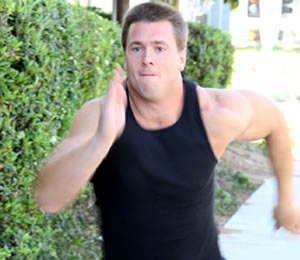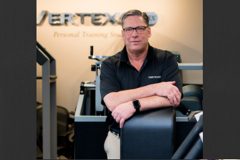Too Much of a Good Thing
A little exercise is good for you, so more must be better, right? Well, sometimes. And sometimes more is just that—more. There comes a point of diminishing returns or, worse, a point where your body says “Enough!” it is too much.
Everyone reaches this point at different times. Triathletes, for example, are able to withstand the rigors of three-sport training— running, cycling and swimming—at levels unthinkable to most. For others, an extra step class or hitting the weights too hard can put them over the top. In the quest for better health and fitness, it is sometimes difficult to quell one’s enthusiasm and take a break from exercise. But if exercise is leaving you more exhausted than energized, you could be suffer- ing from an acute case of overtraining.
Know the signs
It’s important to be able to recognize the signs of overtraining before they become chronic. Physical signs of overtraining include:
• Decreased performance
• Loss of coordination
• Prolonged recovery
• Elevated morning heart rate
• Elevated resting blood pressure
• Headaches
• Loss of appetite
• Muscle soreness/tenderness
• Gastrointestinal disturbances
• Decreased ability to ward off infection
• Increased incidence of musculoskeletal
injuries
• Disturbed sleep patterns
Keep in mind that not all of the signs of overtraining are physical. Much like regular exercise has a positive effect on mood and stress levels, too much exercise can do just the opposite, leaving the exerciser irritable and depressed, particularly as the quality of the workouts declines. Psychological and emotional signs of overtraining include depression, apathy, difficulty concentrating, emotional sensitivity and reduced self-esteem.
Understand the cause…
To read more, Click HERE
Request a complimentary first session at Vertex Fitness, Voted the BEST Personal Training Studio on the Main Line
Click HERE and we will schedule a session to try it yourself
Complimentary First Workout Session









Phil Faris
April 2, 2017 10:10 amOver training can lead to chronic inflammation which can lead to stroke and other cardiovascular diseases. Strength and conditioning coach Joel Jamieson says the 80/20 rule helps athletes avoid over training. He says 20% of your training should be high intensity and 80% low to moderate intensity.